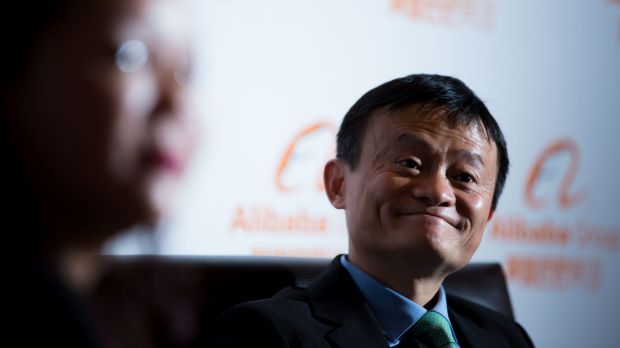China/Junio de 2017/Fuente: The Sydney Morning Herald
Resumen: Los multimillonarios de China han estado tan ocupados haciendo dinero que no han tenido tiempo de gastarlo – y las universidades están ganando de un boom resultante de la caridad. La lista de filántropos top 100 de China 2017 muestra la tendencia de los promotores inmobiliarios más ricos del país, la financiación y los magnates de la tecnología para hacer grandes donaciones de caridad. Casi la mitad (44 por ciento) de las donaciones en 2017 se hicieron a las universidades, frente a un tercio (27 por ciento) hace tres años, según la Lista de Filantropía Hurun 2017.El hombre más rico de China, el fundador de Alibaba, Jack Ma, ocupó el puesto 18 en la lista, por su donación de 26 millones de dólares a la Universidad de Newcastle en Australia.
China’s billionaires have been so busy making money that they haven’t had time to spend it – and universities are winning from a resulting boom in charity.
China’s 2017 top 100 philanthropist list shows the trend for the country’s wealthiest property developers, finance and technology tycoons to make big charitable donations is gathering pace.
Almost half (44 per cent) of donations in 2017 were made to universities, up from a third (27 per cent) three years ago, according to the Hurun Philanthropy List 2017.
China’s richest man, Alibaba founder Jack Ma, ranked 18th on the list, for his $26 million donation to the University of Newcastle in Australia.
Chen Yidan, co-founder of the Chinese social media platform WeChat, ranked as the top education donor with $US320 million ($424 million), after establishing the world’s richest educational grant, the $US8million Yidan Prize.
China’s second-richest man, Wang Jianlin, whose company Dalian Wanda owns the Hoyts cinema chain in Australia, donated $US92 million to rank sixth.
Hurun Report founder Rupert Hoogenwerf said: «There has been so much wealth created in China in the last decade, it is the fastest creation of wealth in the history of the world. Now people are looking at how to use it.»
«There was a huge boom in interest in people buying property overseas, particularly Australia, and Sydney Harbour. Now they are looking to do a lot of legacy building,» he said.
He said China’s billionaires, often from modest backgrounds, felt they could make a difference to society through education, whereas donations to medicine or the environment had greater difficulty in showing results or risked being caught in government red tape.
«Universities are very prestigious. On Wednesday we had the ‘Gao kao’, the Chinese university entrance exam, and across the country, that is all anyone was talking about. The Chinese central examination system is very much associated with social mobility,» he said.
«In China, to be allowed to have a building at a university named after you is a huge honour. If you are a top alumni from Peking University orTsinghua University, and your gift is accepted to do something amazing, that gives you a platform deep into the roots of the top leadership.»
He said most of the education philanthropists donated to their own alma mater, although a new trend of making donations to specific university research fields, such as neuroscience, was beginning to emerge.
Mr Ma made the largest philanthropic donation in the University of Newcastle’s history in February in honour of the Morley family from Newcastle, who had encouraged him to strive for university after meeting him as a child in China.
Property developer Evergrande’s chief Xu Jiayin ranked third, donating $US180 million, including a smaller amount to Harvard University. Mr Xu was forced to sell his $30 million Sydney home by the Australian government in 2015 for breaching foreign buyer laws.
But the biggest donations are being made to Chinese universities. This week, it was reported the chief executive of online shopping business JD.com, Liu Qiangdong, had donated a record $US44 million to Renmin University in Beijing.
Australian citizen Chau Chak Wing, who ranked 29 last year after making a $US11million donation to the University of Sydney to expand its museum, fell off the list.
Dr Chau had previously donated $20 million to the University of Technology, Sydney, in 2012 to build a business school, because his son Eric was a graduate.
Mr Hoogenwerf said there were more rich Chinese at the top making bigger donations than ever before.
The threshold to make the top 100 list rose 20 per cent to 15 million Chinese yuan ($2.9 million). A total of $US2.35 billion was donated to charity by the top 100, with the average donated amount of $US23 million.
Overall, donations fell 45 per cent compared to a year earlier because of the massive, $US2.15 billion donation Tencent founder Pony Ma made in 2015.
Fuente: http://www.smh.com.au/world/universities-the-biggest-winners-from-chinas-top-100-philanthropists-20170608-gwnco3.html








 Users Today : 45
Users Today : 45 Total Users : 35460062
Total Users : 35460062 Views Today : 61
Views Today : 61 Total views : 3418692
Total views : 3418692